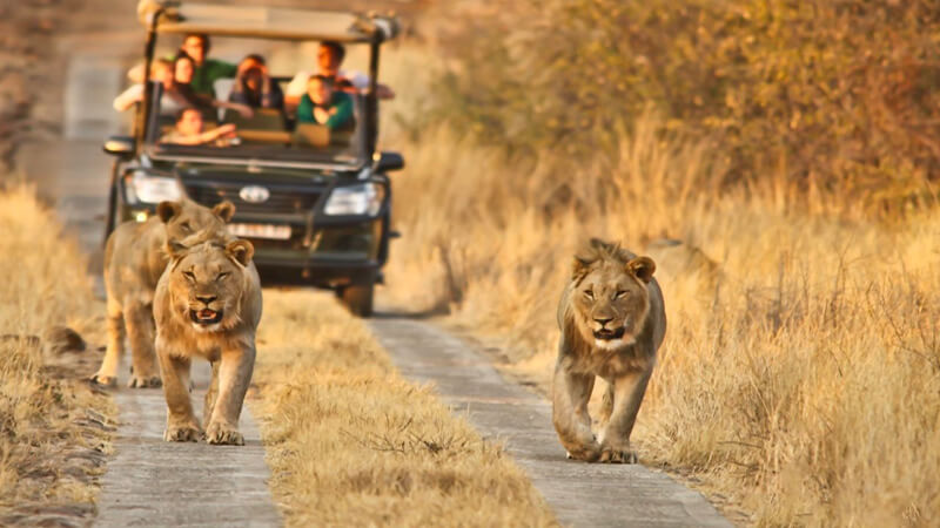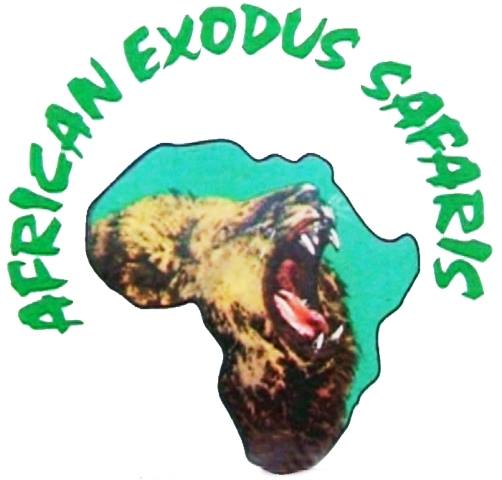WELCOME TO SOUTH AFRICA
With so much to see and do, South Africa is perfect for your first trip to Africa! Safari parks throughout the country offer unbelievable wildlife viewing and a full range of safari lodges, from great value options to all-out luxury. South Africa is a country on the southernmost tip of the African continent, marked by several distinct ecosystems. Inland safari destination Kruger National Park is populated by big game. The Western Cape offers beaches, lush winelands around Stellenbosch and Paarl, craggy cliffs at the Cape of Good Hope, forest and lagoons along the Garden Route, and the city of Cape Town, beneath flat-topped Table Mountain.
We guarantee you will have incredible stories to tell …

Geography
Situated at the southern tip of Africa, South Africa has a landmass of 1 233 404 km² edged on 3 sides by a nearly 3000km coastline washed by the Indian Ocean and the Atlantic. It is bordered in the north by Namibia, Botswana, Zimbabwe and Mozambique, and also wraps itself around two independent countries, the Lesotho and Swaziland.
Capitals
South Africa has 3 capitals: Cape Town (Legislative), Pretoria (Administrative and Bloemfontein (Judicial).
Political system
A well-known fact about South Africa is that since 1994 we have enjoyed democratic government, the apartheid policies of the past overthrown. Our constitution is regarded as an example to the world, and enshrines a wide scope of human rights protected by an independent judiciary. The country is headed by a State President, Jacob Zuma, of the African National Congress (ANC).
Economy
A lesser-known fact on South Africa is that it has achieved steady economic growth in gross domestic product (GDP) since the late 90s. The country, regarded as an emerging market, has a well-developed financial sector and active stock exchange. Financial policies have focused on building solid macroeconomic structures. The country’s central bank is the Reserve Bank.
Tourism
Since the demise of apartheid, international tourist arrivals have surged, making tourism one of the fastest growing sectors. The tourism industry is well-established with an exciting sector of emerging entrepreneurs. The country is strong on adventure, sport, nature and wildlife travel and is a pioneer and global leader in responsible tourism.
Population
The South African population of more than 49m people is extremely diverse. Africans are in the majority, approx. 80% of the population, followed by the white population approx. 4,4m; the coloured population approx. 4,2 million and the Indian/Asian population at approx. 1,2m.
Currency
South Africa’s currency is the rand, which offers visitors great value for money. The rand comes in a range of coins (R1 = 100 cents) and note denominations of R10, R50, R100.
Climate
South Africa has a temperate climate and is known for its long sunny days, hence the title: ‘Sunny South Africa’. Most of the provinces have summer rainfall, except for the Western Cape (winter rainfall). Winter is from May to August; Spring from September to October; Summer from November to February and Autumn is from March to April.
Communications
South Africa has an exceptionally well-developed communications infrastructure. A number of cell-phone providers provide national coverage and there are well-established landline phone networks. Internet and Wi-Fi are easily accessible in most urban areas.
Provinces
There are 9 provinces in South Africa, namely: Eastern Cape, Free State, Western Cape, KwaZulu-Natal; Gauteng, North West, Northern Cape, Limpopo and Mpumalanga
National Symbols
The South African flag is a much-loved symbol of patriotism and other significant national emblems include: National bird: blue crane; National animal: the springbok; National fish: galjoen; National flower: Protea and National tree: the yellowwood.
Languages
South Africa is a multi-lingual country and there are 11 official languages including: English, Afrikaans, isiNdebele, isiXhosa, isiZulu, Sepedi, Sesotho, Setswana, Siswati, Tshivenda and Xitsonga. Composed by Enoch Sontonga in 1899, the Xhosa hymn ‘Nkosi Sikelel’ iAfrika is South Africa’s national anthem
Religions
Almost 80% of South Africa’s population is Christian. Other major religious groups include Hindus, Muslims, Jews and Buddhists. A minority don’t belong to any of the major religions. The Constitution guarantees freedom of worship.
Water
Tap water is potable. However, ensure that you take bottled water with you when travelling to remote rural areas and the bush.
Animals and Plants
South Africa has been declared one of the 18 megadiverse destinations in the world. As a pioneer and leader in responsible tourism, South Africa has numerous conservation projects to protect its natural heritage – travellers can support and take part in many of these projects. The country is home to the famous Big Five (rhino, elephant, lion, leopard and buffalo).
Electricity
The South African electricity supply is 220/230 volts AC 50 HZ. With a few exceptions (in deep rural areas) electricity is available almost everywhere.
Airports The 3 major international airports in South Africa are: OR Tambo International Airport (Johannesburg), Cape Town International Airport and King Shaka International Airport (Durban) as well as 90 regional airports including the Kruger Mpumalanga International Airport (KMIA) in Nelspruit.
Travel by Road and Rail
South Africa has an extensive road infrastructure including national highways and secondary roads. Speed limits are set at 120 kilometres on highways; 100 kilometres on secondary roads and 60 kilometres in urban areas.
Entry requirements
South Africa requires a valid yellow fever certificate from all foreign visitors and citizens over 1 year of age travelling from an infected area or having been in transit through infected areas. For visa requirements, please contact your nearest South African diplomatic mission.
Health and safety
South Africa is well-known for its medical skill since Professor Christiaan Barnard performed the first successful heart transplant in 1967. There are many world-class private hospitals and medical centres around the country, especially in the urban centres. Most of South Africa is malaria-free, but always check with the game reserves you’re planning to visit and take precautions if necessary. Make sure you have the latest safety tips from the establishment where you will be staying and take common sense precautions as you would when travelling.
Some useful information on Travelling in South Africa
Credit Cards: Very important: Please never leave your credit card out of sight, under no circumstances. Cash withdrawal: South Africa has ATM (Automated Teller Machines) available in most of the bigger towns, where any of the International visa or master cards can be usd to withdraw cash.
Very important: Please never accept any help from strangers
Banking Hours in South Africa: most banks in South are open from 09h00 to 15h30 on weekdays, and 09h00 – 11h00 over weekends. Banks are closed on Public Holidays and on Sundays.
Fuelling (gas) stations: accept cash only, no credit cards only, no credit cards are allowed. Most of the bigger towns as well as National Parks have fuelling stations available
Animals on roads: Take special care near animal crossing warning signs or signs warning of the absence of fences. The signs are there for a reason. If you see one animal, expect that there are others nearby. Use your high beams whenever possible. They will give you more time to spot and react to animals in the road. Slowing down a little gives you and the animal more time to react – Be especially cautious at night Shopping hours in South Africa
09H00- 17h00/18h00 Mon-Fri 08h30/09h00 – 13h00 Sat (smaller centres) 09h00 – 17h00/18h00 Sat (urban areas) 10h00 – 15h00/16h00 Sun (urban areas) While supermarkets and bigger shopping malls stay open on public holidays from around 10h00 – 15h00 or 16h00, this is not the case with the corporate world which closes on public holidays.
Hitchhikers: It is not suggested that you pick up hitchhikers on any road in South Africa
Stolen Items: Should you be so unfortunate as to have a personal item stolen from your person or vehicle, please report to the nearest police station, where you will receive a claim number, and which can be used for insurance purposes.
Useful telephone numbers
South African Police Service Emergency Number 10111 Crime Line (report criminal activity anonymously) 32211 Mobile phone emergency number 112 Netcare (Ambulance services) 082 911 ER24 (ambulance services) 084 911 Commercial Branch, SA Police Service 012 393 2473
Health & Safety tips on your tour in South Africa
Sun protection
South Africa is renowned for its warm sunny climate, even during winter – the exception is Cape Town which is generally wet. Visitors should wear a waterproof SPF sunscreen of at least 20 for the body and 30 for the face. Children and those with fair skin should wear SPF50 and hat especially between 11am and 4pm, reapplying frequently, especially after swimming. Sunglasses are also recommended as the African sun glare is also strong. Even on days when there is cloud cover, the same precautions should be taken, as the sun’s rays are magnified through the cloud. There’s no point in getting badly sunburned and then not enjoying your holiday to the fullest.
Ticks
Generally out in the early spring can be found in long grasses and trees. They may carry tick-bite fever, however it is easily treated. To help protect yourself, wear long trousers tucked into white socks, making the ticks more visible, and a hat to protect against ticks falling from trees. Always check your clothing and body for ticks, especially the legs, behind the knees, groin area, as well as the scalp and behind the ears.
Bilharzia
Avoid drinking or swimming in stagnant water that is not flowing or inhabited by fresh water snails. Natal, with its humid forests and oversized snails is one such area where care should be taken.
